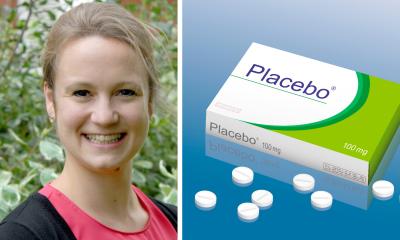New biological approach
Old antibiotic could become valuable depression treatment
An antibiotic used mostly to treat acne has been found to improve the quality of life for people with major depression, in a clinical trial from Deakin University.

The trial added a daily dose of minocycline - a broad-spectrum antibiotic that has been prescribed since 1971 - to the usual treatment of 71 people experiencing major depression. The research team, led by Deakin's Centre for Innovation in Mental and Physical Health and Clinical Treatment within the School of Medicine, then compared the effects to a control group taking a placebo. The results - recently published in the Australian & New Zealand Journal of Psychiatry - showed that those taking minocycline reported improved functioning, a better quality of life and showed improvements in anxiety symptoms.
Lead researcher Dr. Olivia Dean said the research took a unique "biological" approach to treating depressive symptoms, which could inform future therapies. "There is evidence to suggest that people with major depressive disorder have increased levels of inflammation in their body," Dr Dean said. "Specifically, minocycline reduces brain inflammation in cell models, and thus we wanted to see if it was useful for people."
Safe and readily accessible
"We've found that using old medications for new purposes is very useful," she added. "Existing medications have known safety profiles and are readily accessible." In Australia, up to one in four people will experience depression over their lifetime. "Current antidepressants are useful, but many people find a gap between their experience before becoming unwell and their recovery following treatment," Dr Dean said. "We aim to fill this gap by providing new, biologically-based, treatments for depression."
The team is now in the process of applying for funding to expand the trial to a larger group. "We're also considering a study of minocycline for people with anxiety disorders, given what we have found in this study," Dr. Dean explained.
Source: Deakin University
16.07.2017









